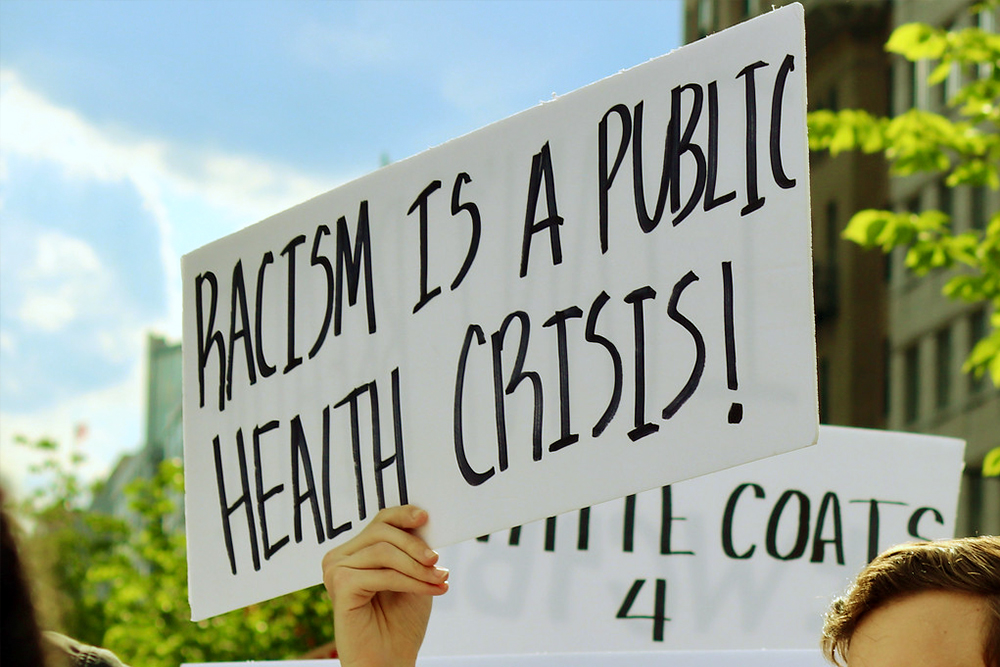October 27, 2022. During this one-hour webinar, Dr. James Fausto, the Medical Director of Palliative Care for UW Medicine and a Cambia Sojourns Leadership Scholar, will review the five key principles of adaptive leadership. He will then ask attendees to reflect on current workplace challenges using these principles, offering a number of resources to learn more about adaptive leadership.
Learning Objectives
- Learn foundational principles of adaptive leadership
- Understand why leading adaptively is important in today’s health systems environment
- Consider how you will apply these principles to your own leadership challenges and personal practice

August 24, 2022. During this one-hour webinar, Karyn Brownson and Tony Gomez, from the Violence and Injury Prevention Unit (VIP) at Public Health — Seattle & King County in King County, Washington, will provide a high-level overview of key policy planning, learning, and overall efforts. They will share key elements of injury and violence prevention work that other public health agencies can learn from and use as guides for their own policy efforts. This includes local, state, and federal efforts on traffic, water, and firearm safety.
Learning Objectives
- Articulate a planning framework for public health policy work.
- Understand the spectrum and steps of prevention.
- Identify key elements of successful Washington state injury and violence prevention policies.
- Understand how to anticipate and address racial, geographic, and other health inequities in policy work.

July 26, 2022. During this one-hour webinar, Cynthia Harris and Rizza Cea — with the Washington State Department of Health’s Sexual and Reproductive Health Program — will share why and how the state approaches abortion access with a public health framework. Regardless of the Supreme Court ruling on Roe v. Wade, access to abortion remains legal in Washington State. Washington state will continue to support reproductive health access and abortion access using a public health framework through current state laws and legislation. As other states pass stricter abortion laws that limit access, Washington state is strengthening their position and resources in efforts that center equity and reproductive justice.
Learning Objectives
- Understand and be able to articulate the magnitude of health impacts from the 2021 Pacific Northwest heat dome.
- Understand how states can protect access to abortion, like Washington state, using state laws or policies around reproductive choice.
- Describe the implications of Roe v. Wade being overturned for your state or neighboring states.
- Identify actions your organization can take that support abortion access in your service area using a public health framework, including understanding service gaps.

June 28, 2022. During this one-hour webinar, Brendon Haggerty, interim supervisor of Healthy Homes and Communities at the Multnomah County Health Department, will share changes made since the heat dome, highlight transferable lessons, and resources for other public health agencies.
Learning Objectives
- Understand and be able to articulate the magnitude of health impacts from the 2021 Pacific Northwest heat dome.
- Evaluate strengths and shortcomings of public health preparedness for heat events.
- Navigate to resources describing best practices in heat response.

May 31, 2022. During this one-hour webinar, Jessica Fisher — Vice President for Strategic Initiatives at PHAB — will share the organization’s work to advance the continuous quality improvement of tribal, state, local, and territorial public health departments.
Learning Objectives
- Provide context for transformation efforts.
- Discuss national initiatives focused on transformation and systems.
- Contribute to a dialogue around how practitioners can engage in transformation efforts.

April 20, 2022. During this one-hour webinar, Dr. Charlene Aqpik Apok — executive director and co-founder of Data for Indigenous Justice — will share the organization’s work to gather, steward, and decolonize data.
Learning Objectives
- Know broadly about the crisis of missing and murdered Indigenous peoples.
- Understand some of the systemic gaps in data on this issue.
- Become familiar with strategies that Indigenous peoples are leading to address this issue.

March 29, 2022. This one-hour webinar, which is part of the Hot Topics series, will introduce public health professionals to the Drug Addiction Treatment and Recovery Act, including why and how it is helping the health and well-being of Oregonians. Participants will hear from the Oregon Health Authority and a community-based organization working on the ground to support addiction treatment and recovery.
Learning Objectives
- Describe why and how a health-based approach to addiction and overdose is more effective, humane and cost-effective than criminal punishments.
- Understand why oversight is important and how it can be done.
- Identify future actions to take after implementing a Drug Addiction Treatment and Recovery Act.

February 22, 2022. This one-hour webinar, which is part of the Hot Topics series, will share how public health professionals can identify, communicate about, and address health inequities in rural communities with the support of Solutions in Health Analytics for Rural Equity across the Northwest (SHARE-NW).
Learning Objectives
- Understand the importance of visual data in identifying and communicating about health inequities.
Describe at least two ways county-level data can help identify health inequities and support decision-making on how to address those inequities.
Consider the effect training can have on developing a culture of data-driven decision making in public health practice.

January 25, 2022. This Hot Topics webinar shares how organizations can help address racial bias using the “Racial Justice Competency Model for Public Health Professionals.”
Learning Objectives
- Identify steps to cultivate cultures of belonging in all shared spaces
- Consider the importance of using the Racial Justice Competency Model in addressing racial bias and creating a sense of belonging
- Apply health and racial equity principles across public health policies and practice competently using the Racial Justice Competency Model

December 14, 2021. This one-hour webinar, which is part of the Hot Topics series, reviews tips for developing more inclusive data practices that better represent the people behind the numbers.
Learning Objectives
- Consider the importance of inclusion in public health data visualizations.
- Detect biases that impact the visualization process.
- Identify basic approaches for inclusive data visualization practices.

November 16, 2021. This one-hour webinar, which is part of the Hot Topics series, reviews framing principles about alcohol and drugs to help practitioners, journalists, advocates, and other communicators tell a new story about this urgent and timely issue.
Learning Objectives
- Describe the role of framing in telling the story of alcohol and drugs in the United States and in helping broad audiences imagine the systems-level solutions required to reverse trends.
- Identify how harmful stereotypes are reinforced in the “usual stories” about drugs and alcohol and what is needed to develop and tell new "solutions" stories.
- Specify resources to both illuminate current patterns in communications about drugs and alcohol and to help build a new narrative.

October 26, 2021. This one-hour webinar, which is part of the Hot Topics series, considers strategies for preventing firearm injury in older adults with cognitive impairments.
Learning Objectives
- Describe the major risks related to having firearms in the home.
- Identify the period of greatest risk for perople with Alzheimer’s Disease and its related dementias regarding suicide.
- List and understand key policy and other pragmatic solutions being used to address firearm safety around the country.

May 27, 2021. This one-hour webinar, which is part of the Hot Topics series, considers successful strategies for COVID-19 vaccine distribution in Alaska.
Learning Objectives
- Understand the role of the Alaska Tribal Health System, tribal self-determination, and Alaska Native demographics.
- Describe how the Alaska Tribal Health System supports Alaska’s public health system and industries.
- Review Alaska’s response to the COVID-19 pandemic and the innovative state and tribal vaccination campaign.

April 27, 2021. This one-hour webinar, which is part of the Hot Topics series, considers how public health organizations can navigate change in the face of disclosed or undisclosed trauma experienced by staff.
Learning Objectives
- Consider methods for assessing organizational and individual change readiness.
- Discuss Prosci’s ADKAR change management tool for identifying barriers to change.
- Describe how to screen for the prevalence of trauma and the organizational capacity to successfully manage and minimize it throughout the change lifecycle.

March 30, 2021. This one-hour webinar, which is part of the Hot Topics series, reviews strategies and policy approaches for preventing adolescent intimate partner violence.
Learning Objectives
- Review the history of how intimate partner violence came to be viewed as a public health issue in the United States.
- Examine epidemiological data on intimate partner violence as it affects adolescents.
- Consider strategies for addressing adolescent intimate partner violence through state laws.
